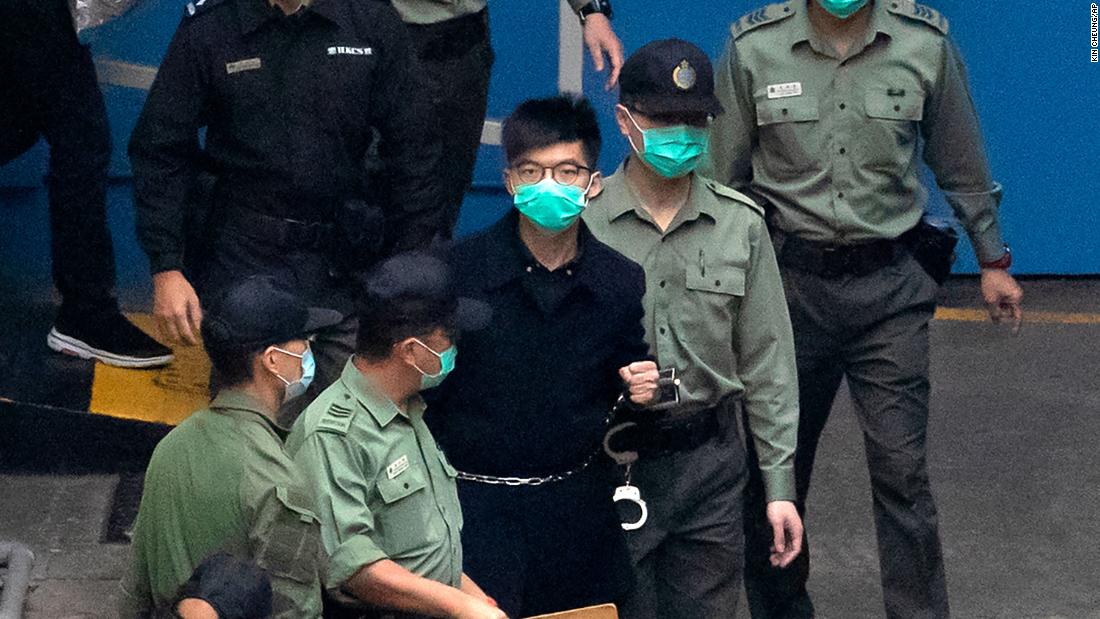The 15 defendants included former lawmakers Kwok Ka-ki, Jeremy Tam and Helena Wong, said chief magistrate Victor So. All 32 remaining defendants, including former law professor Benny Tai and activist Joshua Wong, were detained in custody until the next hearing on May 31.
However, prosecutors immediately appealed bail orders, forcing the magistrate to also have the 15 defendants in custody arrested until an appeal hearing is heard in the High Court within 48 hours.
In granting bail, Chief Judge Victor So said defendants should not publish any speeches or commit any acts on any platforms that could reasonably be considered a threat to national security. The 15 defendants are also not allowed to participate in any elections, except in voting.
Defendants must not come into direct or indirect contact with any foreign authority or legislator, and must hand over all travel documents and obey a curfew order.
After the decision was announced, some of the defendants shouted “People of Hong Kong, we haven’t died yet” and “Political prisoners are not to blame”, and thanked the lawyers for their support.
Under Hong Kong law, reporters are not allowed to disclose details of individual bail requests. The magistrate refused an exemption request at the hearing.
The prosecution postponed the next hearing to May 31, after prosecutors said the police would need more time to investigate the defendants’ mobile devices and financial records.
The bail decisions came after prosecutors and the defense spent four full days debating whether each defendant should receive bail.
Supporters fill gallery
Since Monday, supporters of the pro-democracy movement – most of them wearing black – have lined up outside the West Kowloon courthouse and filled the public gallery. As the decision was announced on Thursday night, dozens of police officers were seen waiting outside the courthouse building.
Hong Kong’s common law system traditionally requires prosecutors to convince the court why a judge should not grant bail. However, national security law stipulates that defendants cannot receive bail unless the court is convinced that they “will not continue to commit acts that endanger national security”.
Representatives from foreign missions were present to accompany the proceedings. Joakim Ladeborn, deputy consul at the Swedish embassy in Hong Kong, told CNN on Tuesday that the EU was concerned about how the national security law was implemented in Hong Kong. “We are closely monitoring cases related to national security law,” he said.
The authorities chose to conduct all bail hearings simultaneously, which transformed what is normally a routine legal procedure into a series of long and tiring court sessions.
At least six defendants were hospitalized during the hearing marathon, the court heard.
The 47 pro-democracy politicians are accused of conspiring to commit subversion during the election primaries last July, marking the highest enforcement of national security law since it was imposed last year. The crime carries a maximum sentence of life imprisonment.
Prosecutors asked the judge to deny bail for all 47 defendants and give the government another three months to investigate, which at least one defense lawyer called “a great injustice”.
Comprehensive legislation
Prosecutors argued that the defendants, which include prominent activist Joshua Wong and law professor Benny Tai, were involved in a “massive and well-organized scheme to subvert the Hong Kong government” by planning and participating in an unofficial primary election. last July. These disputes are a normal function in democracies around the world, during which political parties select the strongest candidates for an election.
However, the police claimed that the scheme came into conflict with the new national security law. The law criminalizes secession, subversion, terrorism and collusion with foreign powers and carries the maximum sentence of life imprisonment. Cases under comprehensive legislation are handled by a dedicated branch of the Hong Kong police and by judges assigned to hear national security cases.
The trial of the 47 political activists found strong opposition in Hong Kong and in all Western democracies, such as the United Kingdom and the United States.
China says it was necessary to enact national security legislation after the government’s attempt to present an unpopular extradition bill sparked massive, sometimes violent, pro-democracy protests in Hong Kong almost two years ago.
The Hong Kong local government and officials in Beijing argue that the charges against the 47 activists are a matter of national security and have warned foreign parties against interfering in China’s internal and judicial affairs.
